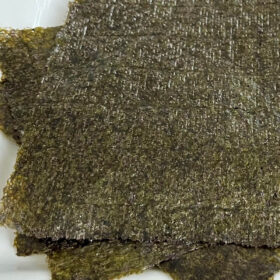Learning which foods are good vegan sources of iodine can help ensure you get enough of this essential nutrient if you’re following a plant-based diet. While animal products are traditional sources of iodine, vegans can still meet their iodine needs by incorporating certain plant-based foods into their diet.
Iodine is a trace element essential for the production of thyroid hormones, which regulate metabolism, growth, and development. Some plant-based iodine sources include seaweed, iodized salt, and some lesser-known options like asparagus and fortified products. Here’s a list of nutritious and tasty sources:
1. Seaweed (Nori, Kelp, Wakame)
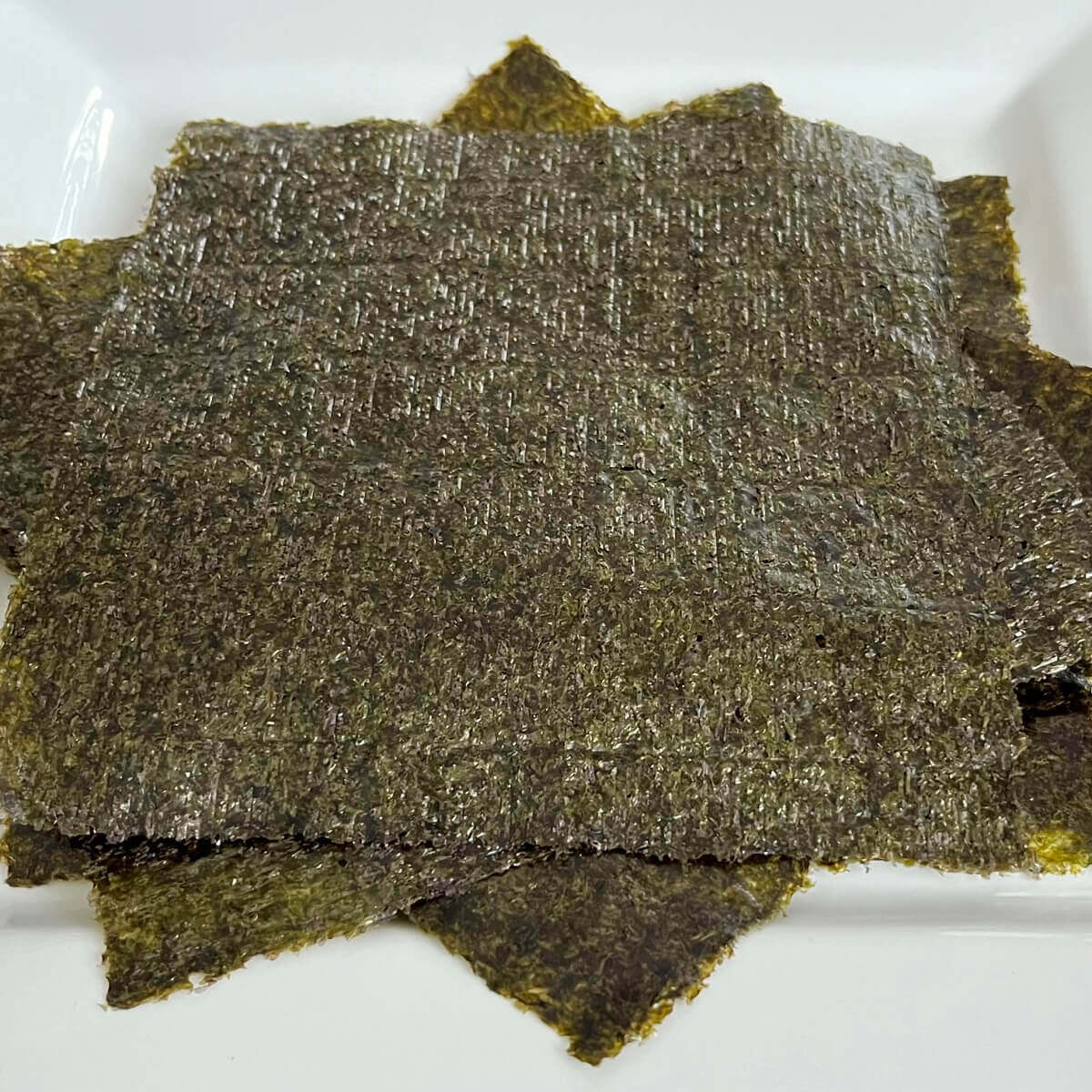
Seaweed is one of my favorite vegan sources of iodine. Varieties such as nori, kelp, and wakame are rich in this vital nutrient. Including seaweed in a plant-based diet is a great way to meet your iodine requirements without the need for animal products.
Drawbacks of Seaweed as an Iodine Source
While seaweed is a very rich source of iodine, it’s important to consume it in moderation. Excessive intake of certain types of seaweed can lead to excessive iodine intake. Also, seaweed can contain heavy metals and other contaminants, so sourcing it from reputable sources and consuming it in controlled amounts is very important.
Seaweed Iodine Content
According to the USDA National Nutrient Database, nori seaweed contains 2520 mcg of iodine per 100g.
2. Iodized Salt (Fortified With Iodine)
Iodized salt is a convenient vegan iodine source. The process of iodization involves adding iodine to salt. Incorporating iodized salt into a vegan diet is a simple way to help prevent iodine deficiency.
Iodized Salt Iodine Content
According to the USDA National Nutrient Database, iodized table salt contains 5080 mcg of iodine per 100g.
3. Fortified Plant-Based Products
Plant-based products fortified with iodine include certain brands of plant-based milk, such as almond milk, soy milk, and coconut milk. Some brands of vegan yogurt, bread, and breakfast cereals are fortified with iodine as well. Checking product labels for “fortified with iodine” or “iodized salt” can help you ensure you’re getting an adequate amount of this essential nutrient.
4. Baked Potatoes (With Skin)
Baked potatoes can contribute to iodine intake, albeit in smaller amounts compared to seaweed or iodized salt. To boost their iodine content further, pair baked potatoes with iodine-rich toppings like seaweed flakes or iodized salt.
Baked Potatoes Iodine Content
According to the USDA, FDA, and ODS-NIH Database for the Iodine Content of Common Foods, baked potatoes with skin contain 0.5 mcg of iodine per 100g.
5. Celery
While celery isn’t a major source of iodine, it can still contribute to overall intake. Including celery in your plant-based diet can add a small boost of iodine plus various other essential nutrients.
Celery Iodine Content
According to the USDA, FDA, and ODS-NIH Database for the Iodine Content of Common Foods, raw celery contains 1.7 mcg of iodine per 100g.
6. Kale
Kale is another smaller source of iodine which can contribute to your overall intake. Add it to salads, smoothies, or stir-fries for a little iodine boost.
Kale Iodine Content
According to the USDA, FDA, and ODS-NIH Database for the Iodine Content of Common Foods, fresh, pan-cooked kale contains 1.8 mcg of iodine per 100g.
7. Asparagus
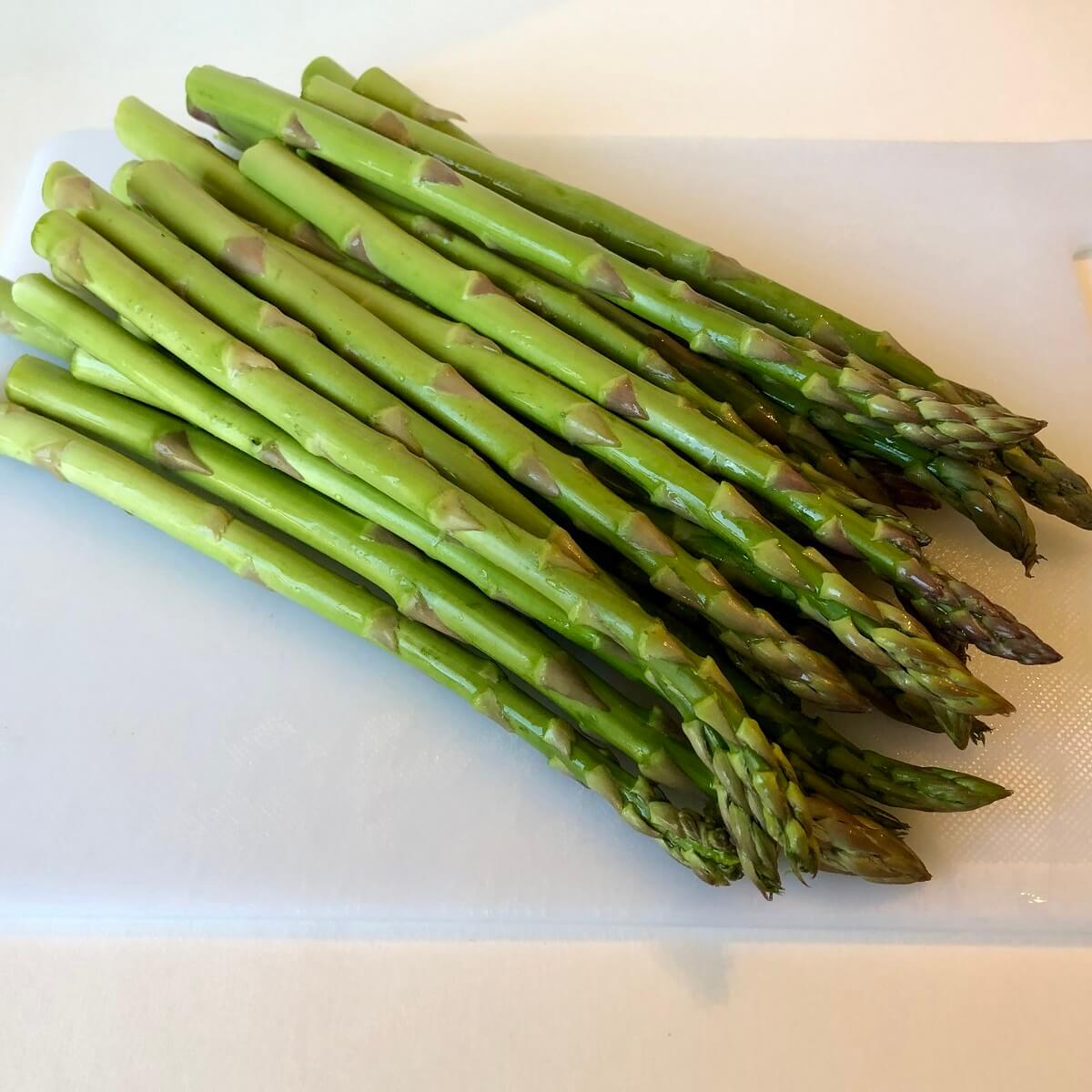
Asparagus is another modest source of iodine which you can incorporate into your diet for a small boost. I like to roast it until tender and serve it as a side dish with a sprinkle of iodized salt and a squirt of fresh lemon juice.
Asparagus Iodine Content
According to the USDA, FDA, and ODS-NIH Database for the Iodine Content of Common Foods, boiled asparagus contains 0.9 mcg of iodine per 100g.
8. Spinach
Spinach is packed with vitamins, minerals, and antioxidants, in addition to containing some iodine. Add it to salads, smoothies, or sautee it in some olive oil for a simple side dish.
Spinach Iodine Content
According to the USDA, FDA, and ODS-NIH Database for the Iodine Content of Common Foods, boiled spinach contains 3.9 mcg of iodine per 100g.
9. Pineapple
Pineapple is another food that provides a small boost of iodine. It also offers additional nutrients such as vitamin C and antioxidants. Enjoying pineapple as part of fruit salads, smoothies, or as a snack on its own can boost your overall iodine intake.
Pineapple Iodine Content
According to the USDA, FDA, and ODS-NIH Database for the Iodine Content of Common Foods, raw pineapple contains 0.3 mcg of iodine per 100g
10. Broccoli
While not at the top of the list of iodine-rich vegan foods, broccoli contains plenty of vitamins, minerals, and antioxidants in addition to some iodine. Incorporating broccoli into your meals can provide a small iodine boost.
Broccoli Iodine Content
According to the USDA, FDA, and ODS-NIH Database for the Iodine Content of Common Foods, fresh, boiled broccoli contains 0.5 mcg of iodine per 100g
11. Sweet Potatoes
Sweet potatoes are another modest vegan iodine source. I like to roast it until fork tender and serve it with a drizzle of olive oil and a sprinkle of salt.
Sweet Potatoes Iodine Content
According to the USDA, FDA, and ODS-NIH Database for the Iodine Content of Common Foods, baked, peeled sweet potatoes contain 1.5 mcg of iodine per 100g.
12. Cucumbers
Cucumbers are a great source of hydration, various vitamins and minerals, plus a small amount of iodine. Add cucumbers to salads, sandwiches, or enjoy them on their own as a snack.
Cucumbers Iodine Content
According to the USDA, FDA, and ODS-NIH Database for the Iodine Content of Common Foods, raw, peeled cucumber contains 0.5 mcg of iodine per 100g.
Vegan Recipes Containing Iodine
1. Vegan Spinach Artichoke Dip
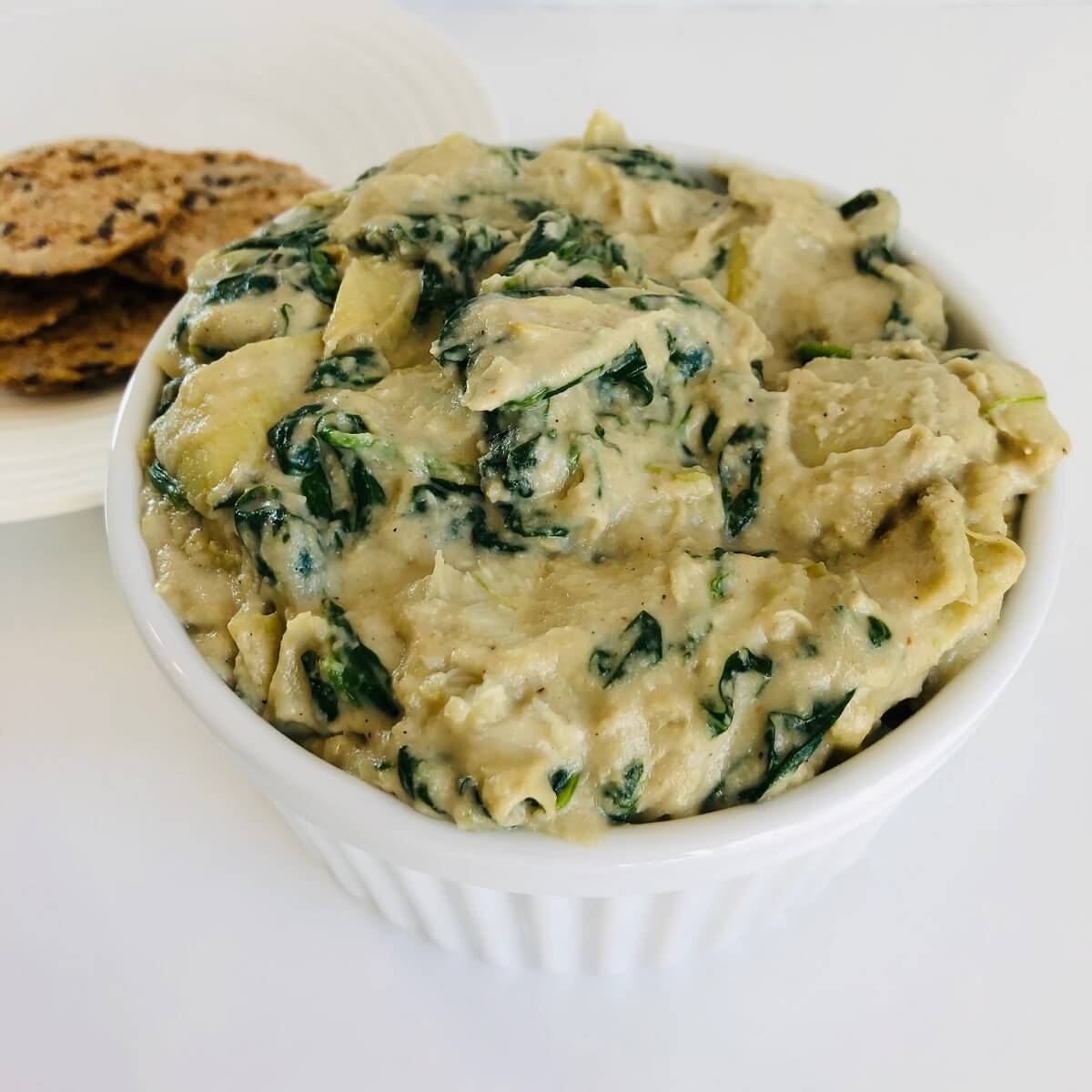
This luscious spinach dip contributes to overall iodine intake, especially if you use iodized salt. Vegan Spinach Artichoke Dip Recipe
2. Roasted Asparagus
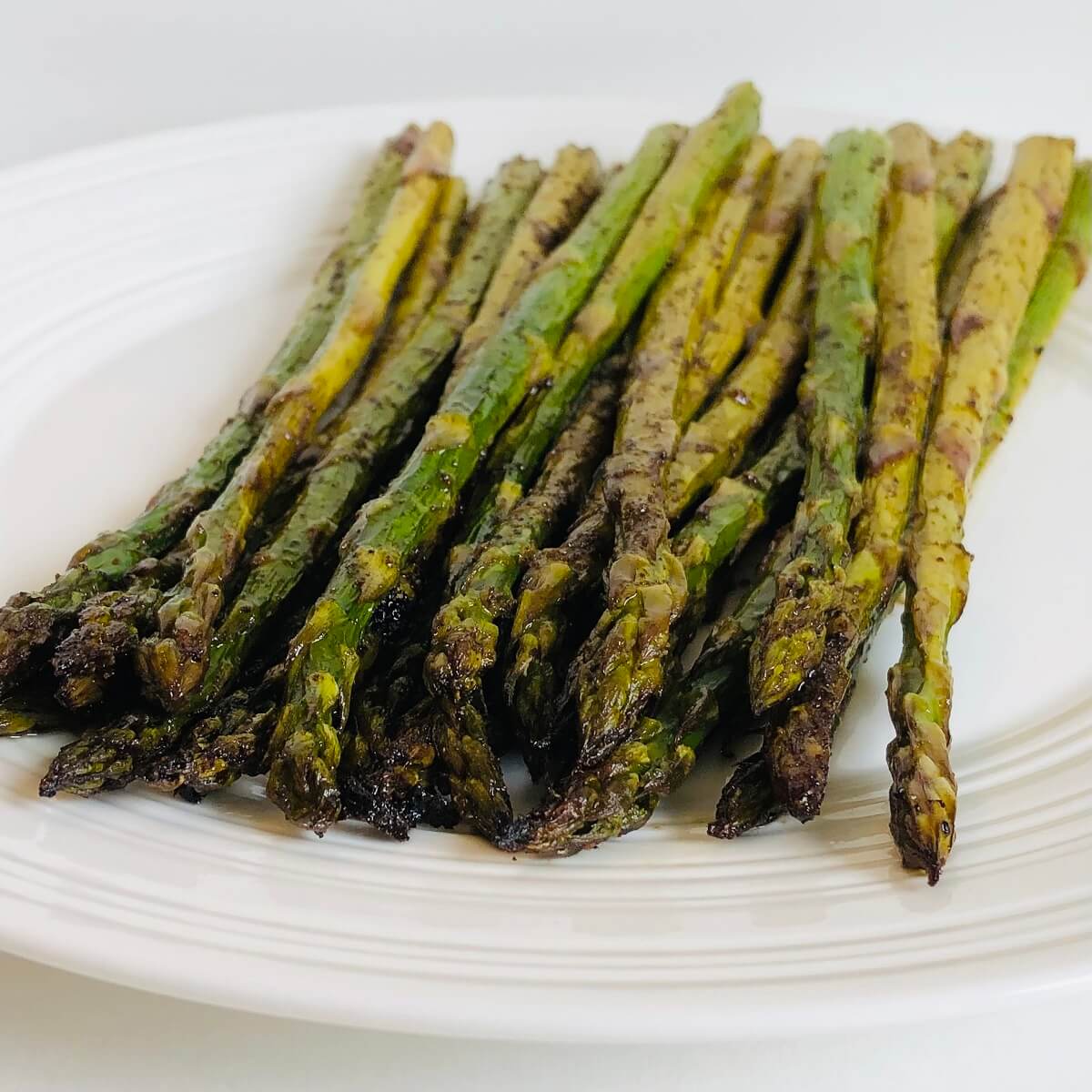
This simple roasted asparagus is quick and easy to prepare. Roasted Asparagus Recipe
3. Vegan Hasselback Sweet Potatoes
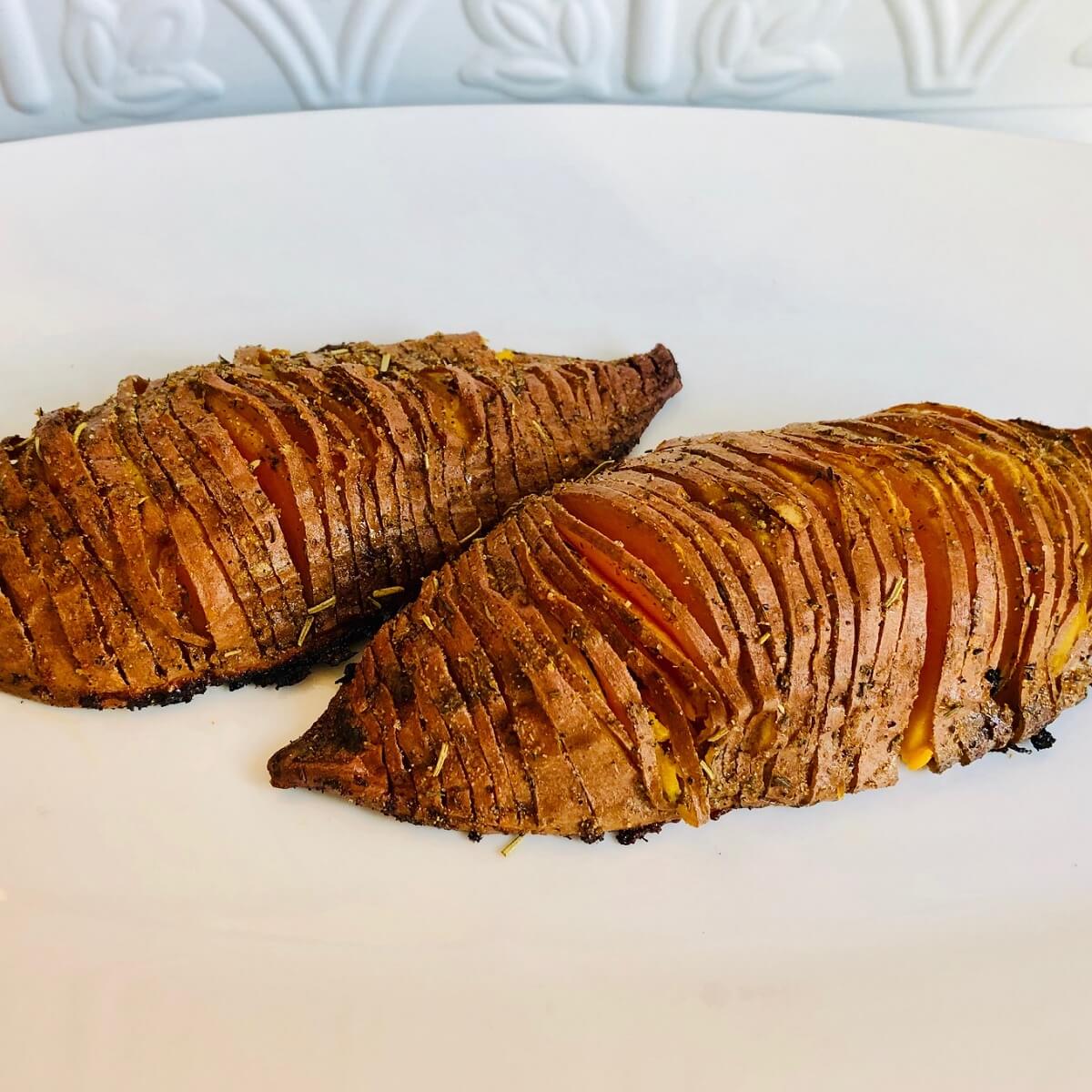
These plant-based hasselback sweet potatoes are a delicious and nutrient-rich side dish. Vegan Hasselback Sweet Potatoes Recipe
You Might Also Like
- This overview of vegan magnesium sources is helpful if you’re trying to boost your intake of this essential nutrient.
